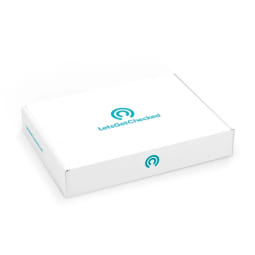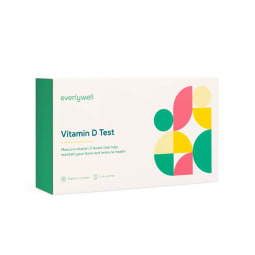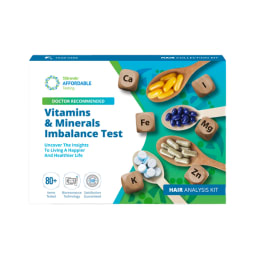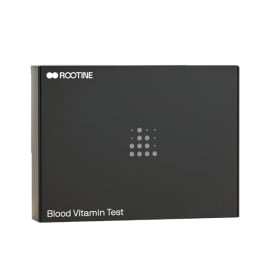Vitamin deficiencies are not always tested in a doctor’s office for a few reasons. First, these tests are typically not covered by insurance, unless you have a known diagnosis. The symptoms of vitamin deficiencies can also be vague, making it difficult for providers to pinpoint a cause. Lastly, some health care providers are not comfortable treating vitamin deficiencies, especially for more obscure vitamins. Thankfully, the rise of at-home testing is making it easier to learn more about your body’s vitamin and nutrient levels without a doctor’s order. Just keep in mind, abnormal results should always be discussed with a health care professional (and we’d still recommend asking your primary care doctor for one whenever possible). To help make your search for a reputable home test easier, we performed an analysis of the options available and determined which stand out from the rest. Read on to learn more about home testing and discover our picks for the best at-home vitamin deficiency tests to uncover whether you’re among the millions of people not hitting their optimal levels. As expected, most at-home tests don’t include all 13 vitamins but instead focus on vitamins D and B. Vitamin D is one of the most important vitamins to test for since it’s estimated a billion people worldwide are vitamin D deficient (and women are 11% more likely to be lacking in this vitamin). The common deficiency means every test on our list measures vitamin D levels—but many also explore other essential nutrients. There are two sample types used for at-home tests: a finger prick (by a very small needle called a lancet) or a hair sample. With the finger prick, you’ll put drops of blood into a small vial or tube, which is then packaged up and mailed back to the lab. The hair sample requires just a few strands of hair pulled from your head. While many prefer the ease of the hair sample, this sample type is generally not as reliable as blood tests and will not be suitable for someone who is bald. Additionally, hair samples may not be accurate for someone who dyes their hair or uses chemical treatments, such as keratin. On that note, however, user error can come into play when using any at-home test. As U.K.-based medical provider and health enthusiast Michael Njunge notes, finger prick testing is only accurate if it’s done correctly. The blood needs to be taken from the right body part at the right time of day without contamination. For some, this can be a difficult task. If the blood sample is altered in any way, the results will be inaccurate. The simplest way to think about deficiency? Reverse the benefit of that specific vitamin. For example, vitamin D is essential for bone health (among many other things). Njunge explains that a deficiency in vitamin D causes a loss of bone density, resulting in bones that can break easily. The good news is that most vitamin deficiencies can be prevented or managed. Eating a healthy, varied diet is the best way to make sure you are getting all your required vitamins. Sometimes this is not possible based on food availability or geographical location or if the individual does not have optimal GI absorption. The next best option is to enhance your nutrient intake with high-quality vitamins and supplements. Holistic vitamin expert Pamela Peeke, M.D., MPH, confirms that supplements are a convenient way to fill nutritional gaps since even the healthiest Americans can fall short in their dietary intake. Supplements offer a practical preventive path to maintaining good health, as well as a solution to known deficiencies. The brand is transparent in its guidelines; if you’re under 22 years old, you’ll not receive results for vitamin B12. It also limits blood sample collection days to Monday through Thursday, which you’ll need to be mindful of when planning your test. The secure online portal will present your results within two to five days of sending in your sample, and you can expect a nurse to call and discuss any abnormal levels. This brand is unique in that it requires just a few strands of your hair from your head rather than blood. The high-level technology uses bioresonance, which compares the light frequency of the hair sample to the electromagnetic frequencies of organic and inorganic matter. Customer reviews are mixed on 5Strands, with the biggest complaint being that the report is very technical and hard to understand. The results give no context as to what an abnormal result means, so you will need to take your results to a health care specialist to translate (which we recommend in any case). This finger prick test includes vitamin B9, B12, D, hsCRP, and homocysteine (inflammation markers), providing solid insight into potential vitamin deficiencies. Rootine is the first brand to use a genetic assessment in its algorithm to better understand each individual’s unique nutrient needs—and there’s also professional coaching offered.











